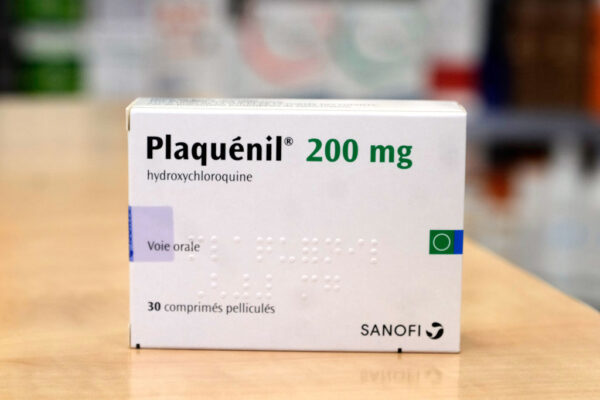
The branded version of hydroxychloroquine, which French drugmaker Sanofi markets outside the U.S., where the decades-old drug is available only in generic form.
The Food and Drug Administration’s emergency use authorization of two malaria drugs for the treatment of Covid-19 poses “fundamental threats” to the regulatory evaluation of drugs and the public’s respect for it, two professors of medicine from Harvard University wrote in an opinion article Wednesday in the New England Journal of Medicine.
The article, by Harvard research fellow in medicine Dr. Benjamin Rome and professor of medicine Dr. Jerry Avorn, carried the neutral-sounding title “Drug Evaluation during the Covid-19 Pandemic,” but it strongly criticized the EUA, which the FDA issued last month for hydroxychloroquine and chloroquine, two closely related drugs used to for malaria, as well as autoimmune diseases like rheumatoid arthritis and lupus.

Reducing Clinical and Staff Burnout with AI Automation
As technology advances, AI-powered tools will increasingly reduce the administrative burdens on healthcare providers.
The EUA is not a blanket license to use the drugs for Covid-19 but rather distributes supplies of them from the Strategic National Stockpile to local health authorities so that doctors can prescribe them to adolescents and adults hospitalized with Covid-19 but unable to take part in clinical trials. It was only the second time an EUA had been given to a drug, following the one the FDA gave to Seqirus’ then-investigational Rapivab (peramivir) for severely ill, hospitalized patients during the 2009-2010 H1N1 swine flu outbreak. The drug later proved ineffective in that population and was ultimately approved only for uncomplicated influenza.
Nevertheless, some interviewed experts have said the FDA’s decision was political as it ultimately stemmed from public statements by President Donald Trump promoting the drugs. Moreover, some doctors in clinical trials of drugs like Gilead Sciences’ remdesivir have said that interest in hydroxychloroquine and chloroquine, driven by publicity around them, is making it harder to enroll patients in the remdesivir studies.
“These developments represent fundamental threats to the U.S. drug-evaluation process,” Rome and Avorn wrote. “Advocating that the FDA should quickly approve drugs without randomized trial data runs counter to the idea of evidence-based medicine and risks further undermining the public’s understanding of and faith in the drug-review process, which requires ‘substantial evidence’ of safety and efficacy based on adequate and well-controlled trials before a drug can be marketed.”
The authors also pointed to problematic events like the Centers for Disease Control and Prevention issuing controversial dose recommendations for the drugs, as well as the “right to try” law that Trump signed into law after being pushed by conservative and libertarian groups.

Health Executives on Digital Transformation in Healthcare
Hear executives from Quantum Health, Surescripts, EY, Clinical Architecture and Personify Health share their views on digital transformation in healthcare.
“This position has intensified a commonly held but spurious belief that slow processes and overly onerous requirements by the FDA prevent patients from accessing many clinically useful drugs,” the authors wrote, noting that the agency in fact approves drugs faster than its counterparts in Europe and Canada.
The evidence for the two malarial drugs has been mixed and highly limited, at best. Trump’s enthusiasm for them stemmed from the publication of a small, non-randomized study of 36 patients that apparently showed those treated with hydroxychloroquine and the antibiotic azithromycin clearing the virus faster than those who were not treated. But in addition to the study being small, non-randomized, unblinded and taking place at an institution, it has also been criticized for methodological flaws that could affect its findings’ validity.
The drugs have also been tested in other small studies, but the results have been mixed, with some showing signs of efficacy and others coming out negative. Some studies have also been halted because of dangerous side effects from the drugs.
Photo: Laurent Viteur, Getty Images








